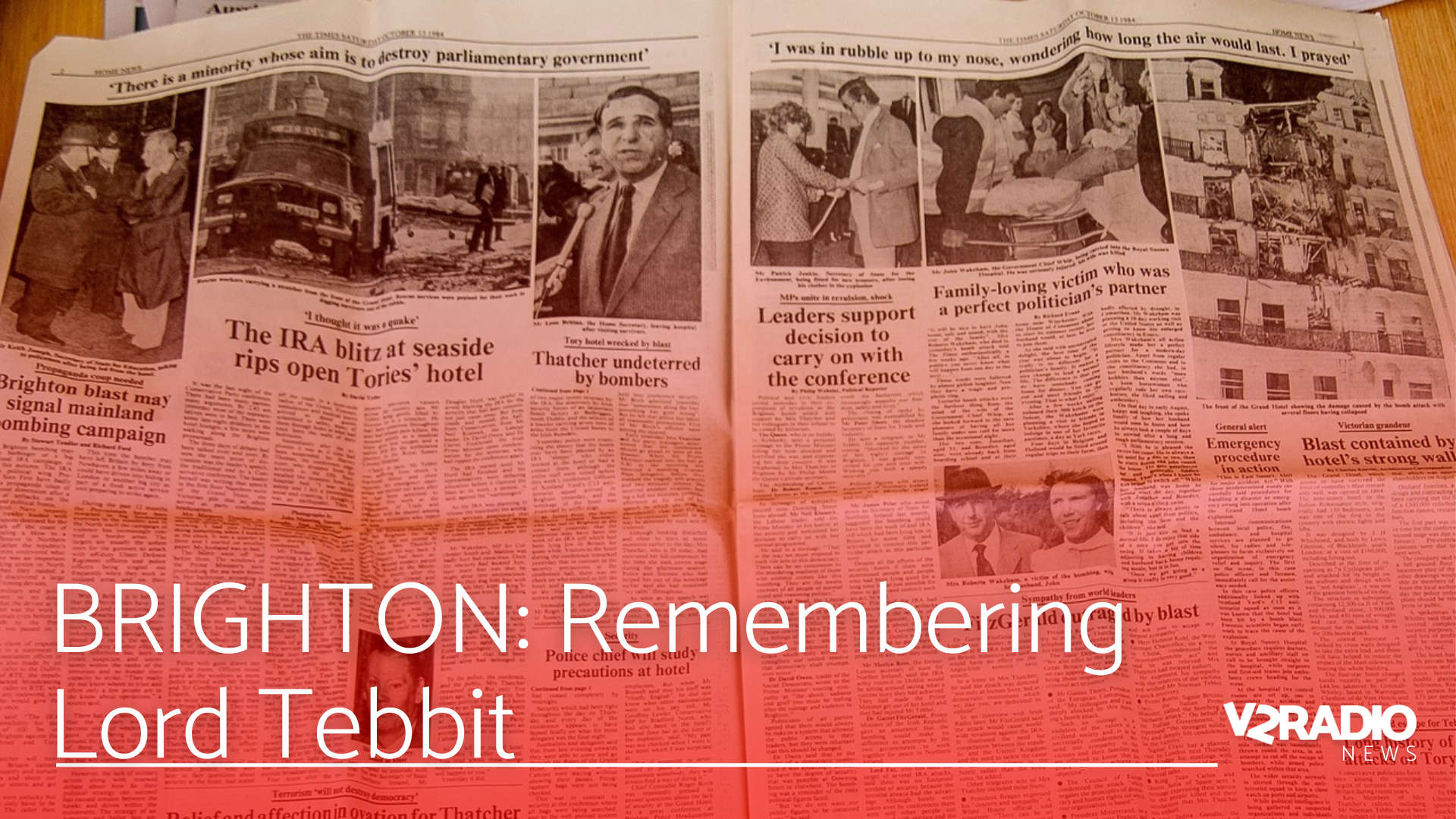
Former Conservative cabinet minister Lord Norman Tebbit, who was injured in the IRA bomb attack in Brighton all those years ago, has been laid to rest following his death earlier this month at the age of 94.
Mourners gathered in Bury St Edmunds on Thursday afternoon to pay their respects to the former MP and peer, who was a key figure in Margaret Thatcher’s government and one of her most trusted allies during the 1980s.
Born in 1931 in Ponders End, north London, Lord Tebbit served in the Royal Air Force before beginning a career in journalism. He entered Parliament in 1970 as the MP for Epping and quickly rose through the ranks of the Conservative Party. Known for his forthright style and strong support of Thatcherite policies, he held several senior roles, including Secretary of State for Employment and Secretary of State for Trade and Industry. He also served as Conservative Party Chairman from 1985 to 1987.
Lord Tebbit’s life was profoundly affected by the IRA bombing of the Grand Hotel in Brighton on 12 October 1984, which targeted the Conservative Party Conference. The attack, carried out by the Provisional Irish Republican Army, was intended to assassinate the Prime Minister and senior cabinet members. The blast killed five people and injured many others.
At the time of the bombing, Lord Tebbit was staying at the hotel with his wife, Margaret. He was pulled from the rubble with injuries, while his wife was left permanently paralysed after being trapped for hours. The attack became one of the most significant moments in the history of domestic terrorism in the UK, and images of Lord Tebbit’s rescue were widely circulated.
Despite the traumatic events, the Conservative conference went ahead the following day, with Lord Tebbit and others reaffirming their commitment to government and public service in the face of violence.
After stepping back from frontline politics in the late 1980s, Lord Tebbit was appointed to the House of Lords in 1992 as Baron Tebbit of Chingford. He remained an active voice in national debate for many years, often speaking out on issues such as the European Union, immigration, and the direction of the Conservative Party.
Lord Tebbit’s political legacy is closely associated with a period of significant change in British politics, and his career was defined by both his convictions and personal resilience in the face of adversity.

 South hit by lightning strikes and flooding as storm sweeps region
South hit by lightning strikes and flooding as storm sweeps region
 New plans for redevelopment of former Gosden Green Nursery site in Southbourne.
New plans for redevelopment of former Gosden Green Nursery site in Southbourne.
 Deadline approaching for West Sussex residents to share views on future of local government
Deadline approaching for West Sussex residents to share views on future of local government
 Witnesses sought for A27 collision involving two HGV's
Witnesses sought for A27 collision involving two HGV's
 Man remanded in custody charged with Chichester stabbing
Man remanded in custody charged with Chichester stabbing
 UPDATED: 31/07/2025 @ 15:24 - South braces for thunderstorms
UPDATED: 31/07/2025 @ 15:24 - South braces for thunderstorms
 Delayed decision over Local Plan in Horsham
Delayed decision over Local Plan in Horsham
 Brighton Pride 2025 - All you need to know
Brighton Pride 2025 - All you need to know
 West Sussex hits out at government plans to help less wealthy councils in the north of England
West Sussex hits out at government plans to help less wealthy councils in the north of England
 Boy trapped in brambles in Steyning
Boy trapped in brambles in Steyning






